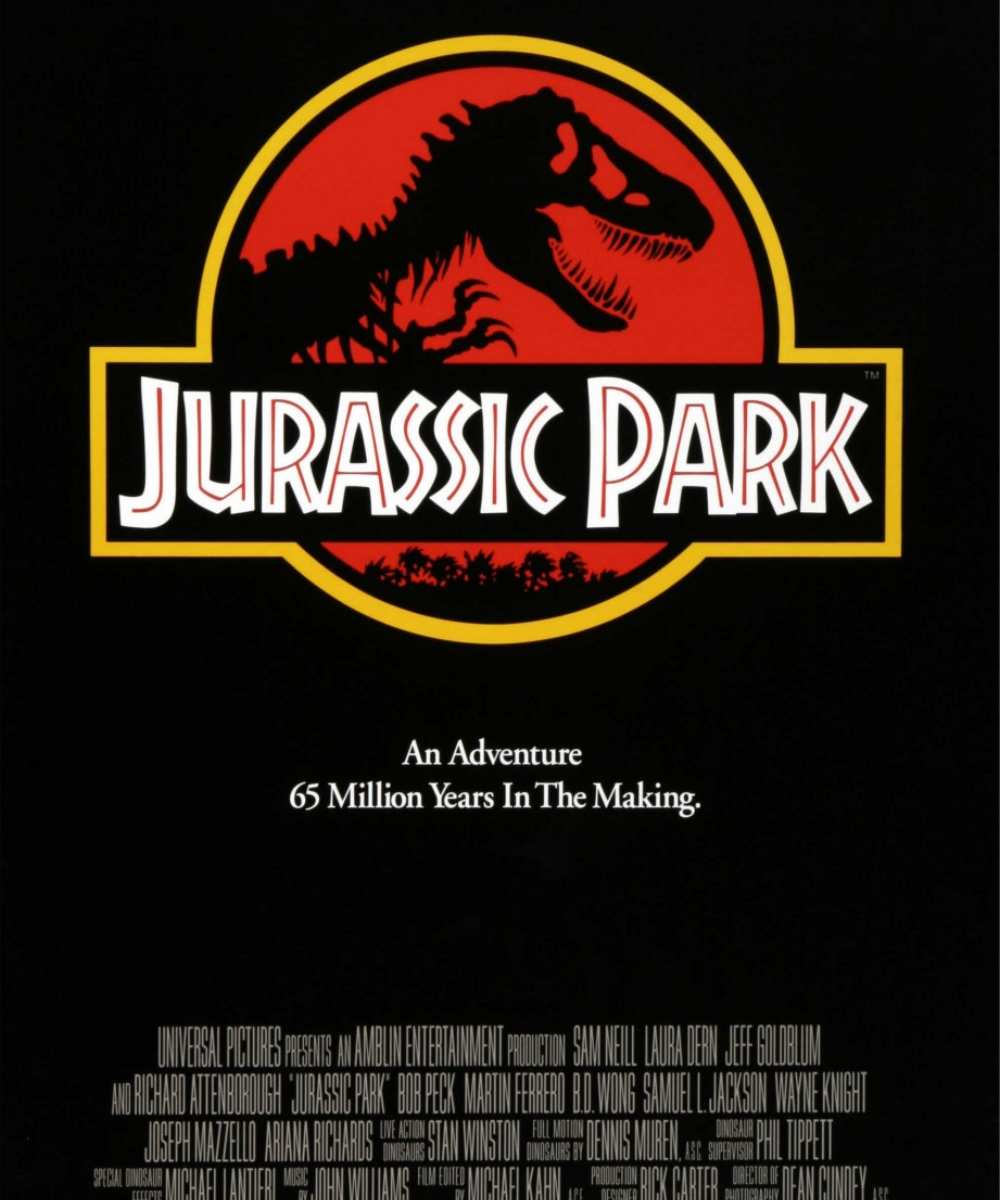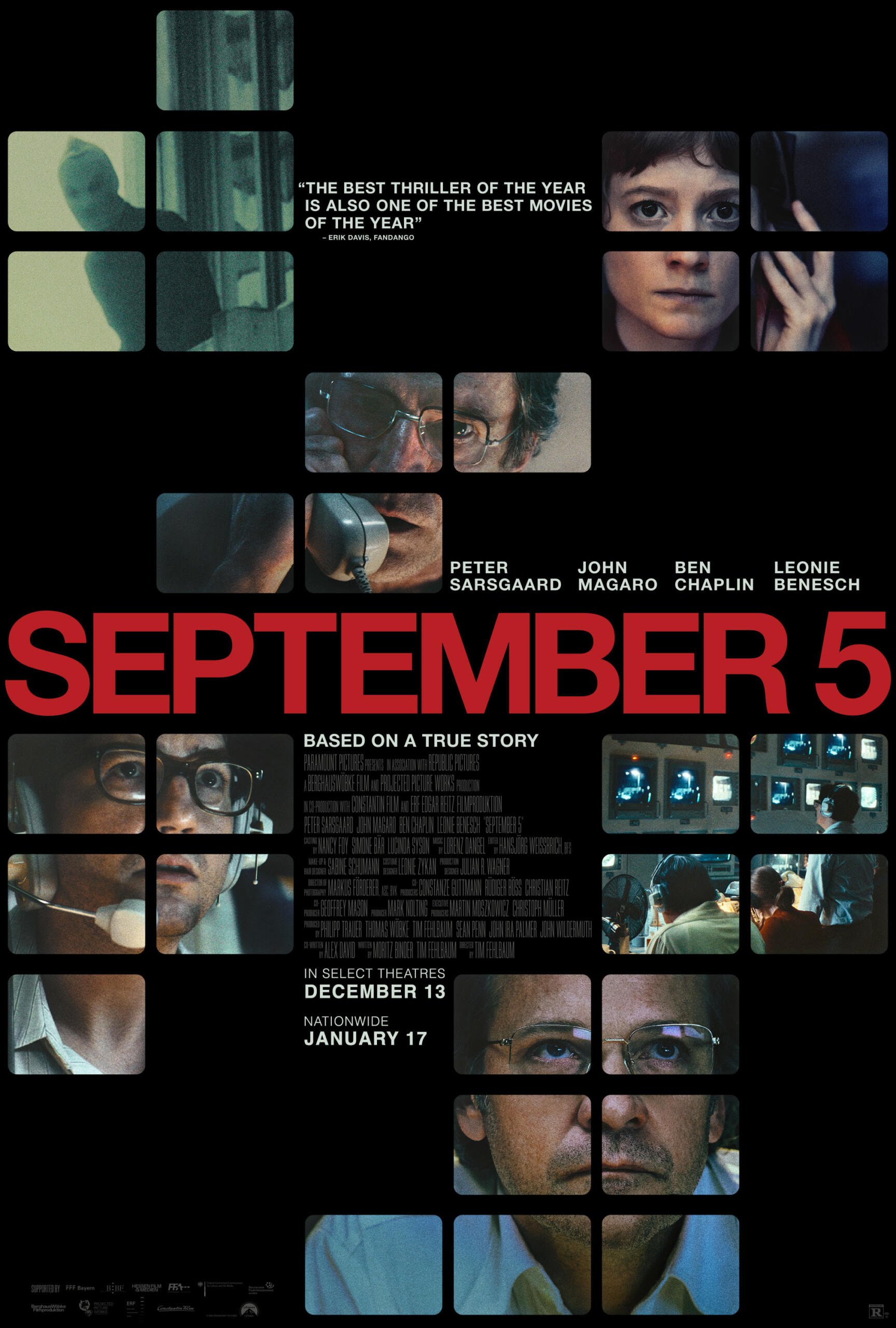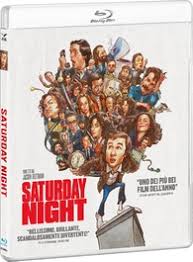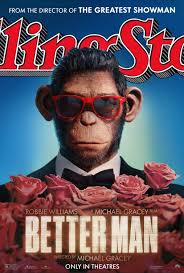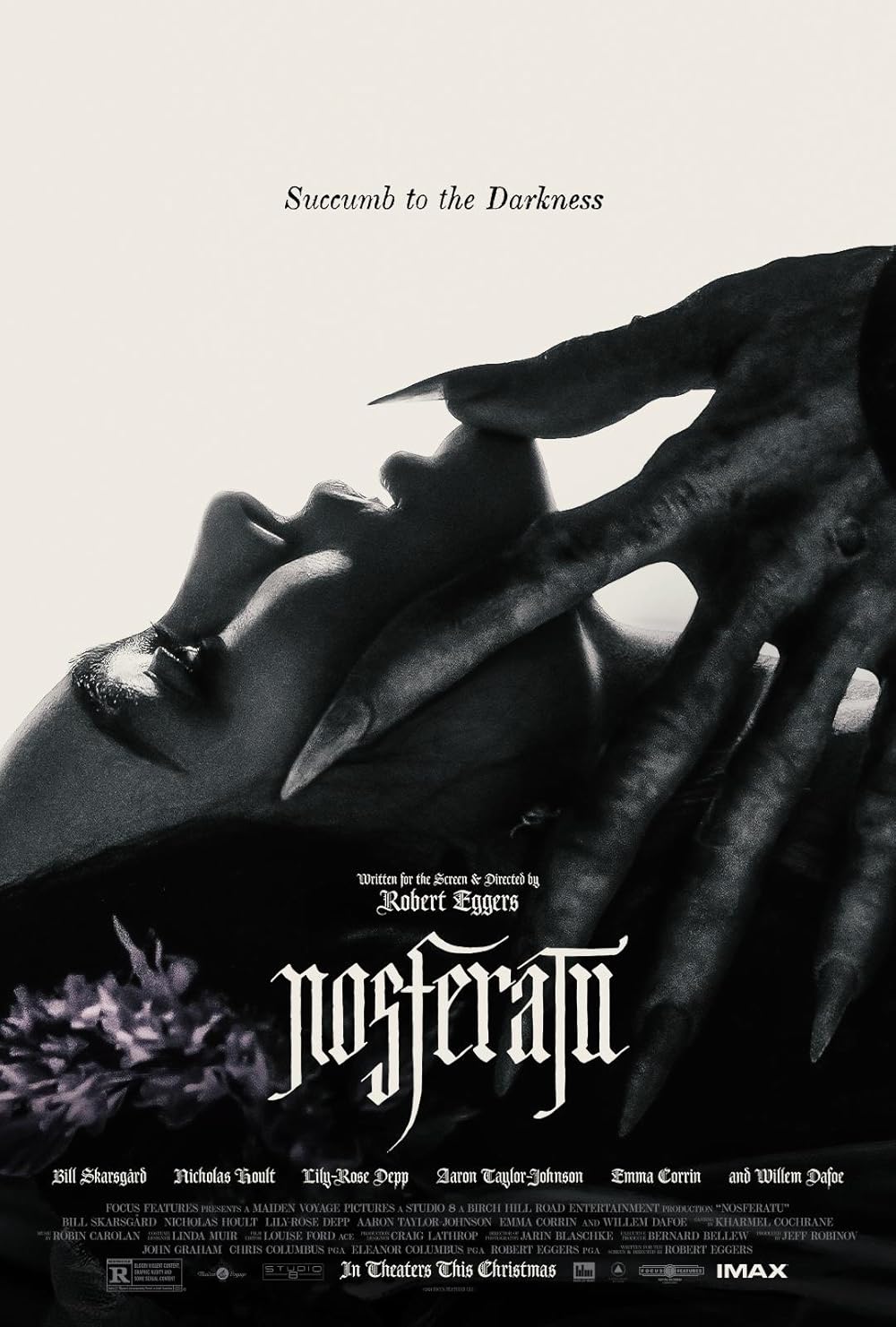Starring: Peter Sarsgaard, John Magaro, Ben Chaplin, Leonie Benesch
Directed by: Tim Fehlbaum
Rated: R
Running Time: 1 hr 35 mins
Paramount Pictures
Our score: 4 out of 5
George Orwell once lamented, “To see what is in front of one’s nose needs a constant struggle.”
It’s even more challenging when you’re also the one deciding how the rest of the world sees.
That’s the engrossing setup behind September 5, a recounting of how the Palestinian terrorist group Black September held members of the Israeli Olympic team hostage in 1972. The incident was the basis of Kevin Macdonald’s Oscar-winning documentary One Day in September and Steven Spielberg and Tony Kushner’s gripping Munich.
Despite covering well-trodden territory, September 5 still feels fresh because it covers how ABC Sports found themselves in the middle of the crisis. Keeping on top of it proved Herculean and required the broadcasters to jerry rig technology where it hadn’t gone before. They also wrestled with ethical issues that would vex experienced hard news reporters.
At the beginning of September 5, the most newsworthy events for ABC’s audience had been the spectacular performance of American swimmer Mark Spitz. Things seem to be so settled that the head of operations, Roone Arledge (Peter Sarsgaard) thinks he can catch up on his sleep.
In his place is the relatively inexperienced Geoffrey Mason (John Magaro) and an overworked German translator Marianne Gebhardt (Leonie Benesch). The expected drudgery turns into relentless anxiety when gunshots ring out from inside the Olympic Village.
Instantly, the crew has a more urgent concern than Spitz’s next medal. Reporter Peter Jennings (Benjamin Walker) has to improvise ways to find out how to get the near the scene of the action and how to get heavy cameras and recording equipment where they were never designed to go.
Some of the tensions that worked its way from the Middle East also erupt in the control room when Jasques Lesgards (Zinedine Soualem), a Frenchman of Algerian descent, briefly clashes with ABC executive Marvin Bader (Ben Chaplin), who’s Jewish. Of course, it’s a given that both realize the story in front of their eyes is more important.
Sportscasters today make placing a distant event in your living room look easy. Much of the thrill of September 5 is that it shows how much effort goes into making something seem effortless. Bader, Arledge and Mason have to sneak 16mm film past guards (who failed to keep Black September out) so that viewers can see how pressing the situation is.
Because the heavens are littered with satellites these days, it’s shocking to learn that ABC Sports had to negotiate with other networks for access to the one satellite available in 1972. Simply staying on the air was almost impossible.
Knowing these facts helps make September 5 exciting. Tim Fehlbaum’s taut direction also helps. In a brisk 95 minutes, Fehlbaum, who wrote the Oscar-nominated script with Mortitz Binder and Alex David, never gives viewers a chance to catch their breaths.
The three acknowledge that ABC Sports completed a formidable achievement in September 5, but they also make Arledge and company completely human. When two technicians successfully figure out how to tap into the Munich police frequency, one makes the mistake of sending Gebhardt out for coffee when she’s the only person in the building who can understand what the cops are saying. Real, flawed people were working that day, and much of the vitality of the story comes wondering which mistakes they can afford to make.
One clever touch Fehlbaum ads is not casting an actor to play Olympics anchor Jim McKay. Instead the director incorporates the actual footage of McKay relaying the story as it came to him. It’s hard to imagine even the best of thespians replicating the power of McKay’s faithful announcements, and Fehlbaum and company seamlessly replicate what the people in the control booth might have been feeding him.
The movie also acknowledges that sometimes doing a good job isn’t always satisfying. Perhaps we don’t get more coverage of the kind ABC Sports provided is because tragedies like the one in September 5 affect the witnesses as well as the participants. Benesch’s turn as Gebhardt is especially moving because she and other Germans hoped the games would be a way for Germans to atone for their homicidal tyranny.
If September 5 is a fascinating look at the past, it’s also a chilly reminder of how terrorism hasn’t gone away and why we need alert and capable people to cover it.
“September 5” receives ♣♣♣♣ out of 5.
